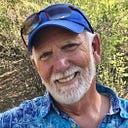Quality + Quantity of Life
Secrets of “Blue Zone” Longevity
I enjoyed the 2023 docuseries, LIVE TO 100: SECRETS OF THE BLUE ZONES which looks at the keys to living a long, healthy and happy life. Is it a particular food? A diet? The climate? Spirituality? The genetic makeup of the people? Or are there other factors that have yet to be identified?
Explorer and endurance cyclist Dan Buettner spent two decades researching longevity. In this show, he travels to Japan, Italy, Greece, Costa Rica, and the United States to uncover the secrets to the “blue zones,” or places where people live the longest, healthiest lives.
The Blue Zones author and educator Dan Buettner explains: “Blue Zones are places there are the largest percentage of centenarians than any other place in the world. The habits, diets, and lifestyles of blue zone centenarians are simple, but they have the ability to change everything.”
“I have found that most of what people think leads to a long, healthy life is misguided or just plain wrong,” says Buettner, pointing to our obsession with diet plans, gym memberships, and expensive supplements — aspects of life that are noticeably absent from blue zone lifestyles. As Buettner says, “The fact of the matter is most of us are leaving good years on the table.”
Studying these regions provides insights into factors that contribute to longevity and overall well-being. Some lessons we can learn from blue zones include:
- Diet: Blue zone inhabitants typically follow a plant-based diet rich in fruits, vegetables, whole grains, and legumes and you will notice the difference in how you feel and look. They consume minimal processed foods and meat, focusing instead on natural, locally sourced ingredients. Stop eating when you are 80% full.
- Physical Activity: Regular physical activity is a common feature among blue zone residents. Their lifestyles often include daily movement, whether through walking, gardening, or other forms of low-intensity exercise. Walk/bike more, drive less.
- Social Connections: Strong social ties and community engagement play a crucial role in blue zones. People in these regions often maintain close relationships with family, friends, and neighbors, providing emotional support and a sense of belonging. This means keeping aging parents and grandparents nearby or in your home. Staying married can add three years to your life.
- Reduce Stress: Blue zone inhabitants typically have lower stress levels compared to those in other regions. Factors such as a slower pace of life, a strong sense of purpose, and group/cultural meetings for spiritual study, meditation or prayer contribute to stress reduction. Writing your life story can be a transformational experience for you and your family.
- Purpose and Engagement: Having a strong sense of purpose and staying mentally engaged throughout life are common traits in blue zones. Whether through work, hobbies, volunteerism or community involvement, residents maintain active and fulfilling lives well into old age. The world’s longest-lived people choose social circles that support healthy behaviors. Happiness is contagious.
- Environment: Blue zones often boast natural environments conducive to health and well-being, such as clean air, access to green spaces, and opportunities for plenty of outdoor activities. One amazing discovery was to learn how a small community in Costa Rica cut healthcare costs dramatically by sending medical professionals door to door to proactively treat illnesses before they blow up into life-threatening diseases which are expensive to treat.
Viewers will be struck by the fact that studying and adopting these lifestyle practices of individuals and communities in other parts of the world we can all find new ways to improve our overall health and increase our chances of living longer, more fulfilling lives.
The good news is that Blue Zones are now beginning to spread throughout the U.S. The Blue Zones Project is a community-wide well-being initiative that helps make healthy choices easier for everyone living in Albert Lea and Freeborn County, Wisconsin.
“When our entire community participates, small changes contribute huge benefits for all of us: Lowered healthcare costs, improved productivity, and a higher quality of life.”
While most traditional health initiatives focus on diet and exercise programs, The Blue Zone Project focuses on changing their community’s culture and environment so that individuals are nudged into making healthy choices. They take a systematic approach to improving well-being through policy, building design, social networks and built environment across all sectors of our community.
According to Blue Zones Project Southwest Florida, “To become a Blue Zones Certified Community, our community came together to help make healthy choices easier. Every individual and organization (over 800 organizations) that adopted Power 9 and other well-being principles as part of their lifestyle and organization’s infrastructure, have contributed to a well-being tipping point to help make healthier choices become part of our culture.”
In addition, community planners and elected officials who implemented best practices make healthier choices easier in our environment have been instrumental in making SWFL a healthier and happier place to live. For example, they can see this on streets where sidewalks and bike lanes have been prioritized, and where streets are designed to move traffic more efficiently and safely.
It’s encouraging that, in a world which seems so politically fragmented and polarized, we can see individuals and communities making a few, intentional and strategic changes can improve both the quality and quantity of our precious life on earth.
I signed up to be involved in the SW Florida ShareCare. Step one is to take a short test to see what your “Real Age” is based on your activity, eating habits, etc. I was pleased to discover that I am still in my 60s vs. my birth age which will be 71 in a few weeks — despite having a miraculous double-lung transplant almost 2 years ago!
Bottom Line: Each day we are given is a gift graciously given to us by a loving Creator. Let us do all that we can to make the most by staying positive, active, present and connected.
